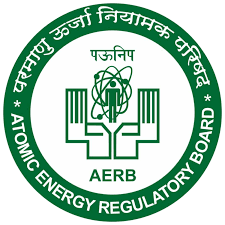Services
Non Destructive Services (NDT)
At AXIS, we provide reliable radiography testing services to inspect welds on piping, pressure vessels, and other process equipment used in construction projects and process plants. Our services are carried out in strict compliance with approved procedures, and all inspection personnel are certified to at least ASNT NDT RT Level II standards.
Techniques OverviewRadiography testing is a non-destructive examination method that employs X-rays or gamma rays to identify internal imperfections, measure wall thickness, and detect corrosion. The process involves directing radioactive rays through the material being inspected, with the resulting image captured on a film positioned behind the object.
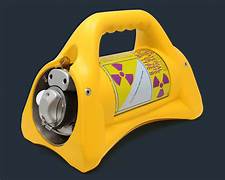
Image Processing: Once the film is developed, it reveals a sequence of grey shades between black and white, representing the thickness and density differences in the material. These variations indicate potential imperfections or defects.
Defect Detection: Radiographic examination highlights material inconsistencies, such as internal flaws, which appear as differences in film blackness. Acceptance criteria are applied to evaluate whether the observed indications constitute unacceptable defects.
Conventional RadiographyThis method uses a homogenous beam from either a radioactive isotope or an X-ray tube to expose the material. The resulting radiographic image is then analyzed to detect and evaluate internal irregularities. By adhering to rigorous standards and employing state-of-the-art technology, AXIS ensures accurate and dependable results for critical inspection tasks.
Our expertise in radiography testing allows us to deliver high-quality, precise inspections that meet the needs of demanding industries and complex projects.
At AXIS, we offer advanced ultrasonic shear wave inspection services for welds in piping, pressure vessels, and other process equipment in construction projects, process plants, and fabrication units. Additionally, we provide ultrasonic longitudinal wave inspection for thickness measurement and corrosion scanning/mapping in plant piping and pressure vessels, in line with industry standards such as API 510 and API 570. All AXIS inspection personnel are certified to at least ASNT NDT UT/UTT Level II, and all services are conducted according to approved procedures.

Ultrasonic testing involves transmitting high-frequency sound waves to detect flaws and measure material thickness. The process works by emitting a pulsed ultrasonic wave from a handheld transducer placed on the object's surface. If there are imperfections inside the material or at the material's back, the wave will be disrupted and partially reflected. This return sound is analyzed, providing valuable information about the location, orientation of defects, and the thickness of the material. Skilled operators use this data to assess whether any detected imperfections are defects based on established acceptance criteria.
AXIS provides Magnetic Particle Testing (MPT) to detect surface and sub-surface imperfections in welds and the heat-affected zones of piping and process equipment. We also offer MPT services during plant shutdowns to detect cracks on the internal surfaces of vessels. Our MPT technicians are qualified to ASNT Level II, and all testing is performed following approved procedures.
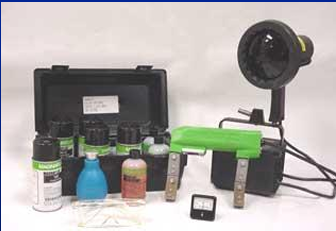
Magnetic Particle Testing is a non-destructive testing method that detects imperfections just below or on the surface of ferrous metals. It is a fast and reliable technique used primarily for detecting surface cracks. The process involves passing a magnetic flux through the material, which creates a leakage field at the location of an imperfection. Metal iron dust is then applied to the surface, which collects at the leakage points, making the imperfections visible. While MPT is highly effective in determining the length of the imperfection, it does not provide information about its depth. Magnetic Particle Testing is applicable to ferrous materials such as carbon steel, low-alloy steel, and cast iron, with the highest sensitivity achieved using fluorescent particles.
AXIS provides Penetrant Testing (PT) to detect surface-breaking imperfections such as cracks, laps, and porosity in welds and the heat-affected zones of piping and process equipment. Our PT technicians are certified to ASNT Level II, and all tests are conducted in accordance with approved procedures.
Techniques OverviewPenetrant Testing is a non-destructive testing method used to detect surface defects that are not visible to the naked eye. The process involves applying a fluid (penetrant) to the material surface, which seeps into any surface-breaking defects. After allowing the penetrant to settle, the excess fluid is washed off, and a developer is applied to the clean surface. The fluid trapped in the defects will be drawn out, making the defects visible as indications. PT is primarily used for inspecting clad layers, welds, and heat-affected zones. The acceptance criteria will determine whether these indications represent unacceptable defects. Dye Penetrant Examination is mainly used for clad layer, welds and heat affected zones.
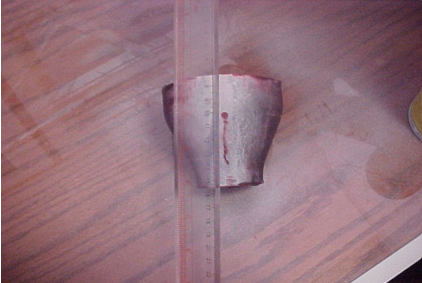
Our Positive Material Identification (PMI) services ensure accurate determination of material composition, enabling the identification and sorting of various material types. PMI is critical for construction projects where material reliability and compliance with specifications are paramount.
Key Features:
Accurate determination of alloy compositions, especially in high-quality materials like stainless steel and high alloys.
Assurance that the correct materials are used, enhancing safety and performance.
Utilization of advanced technologies like XRF (X-Ray Fluorescence) for general analysis and OES (Optical Emission Spectroscopy) for lighter elements like carbon.
Post-Weld Heat Treatment Services (PWHT)In addition to our NDT and inspection services, we offer Post-Weld Heat Treatment (PWHT) for plant piping after welding. This essential service:
Relieves residual stress developed during welding.
Enhances the long-term reliability of welded components.
Pre Heating & Post Weld Treatment Services for Pressure VesselsPost weld heat treatment (PWHT) is a controlled process in which a material that has been welded is reheated to a temperature below its lower critical transformation temperature, and then it is held at that temperature for a specified amount of time.
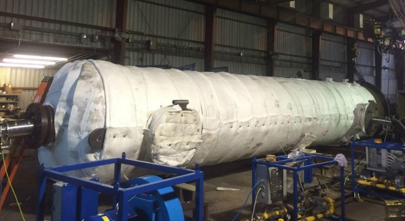
Copyright © Axis NDT. All Rights Reserved. | Website Designed and Developed by ScoriaIT Private Limited.

